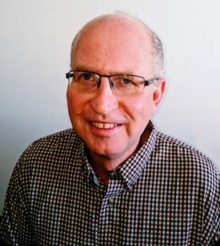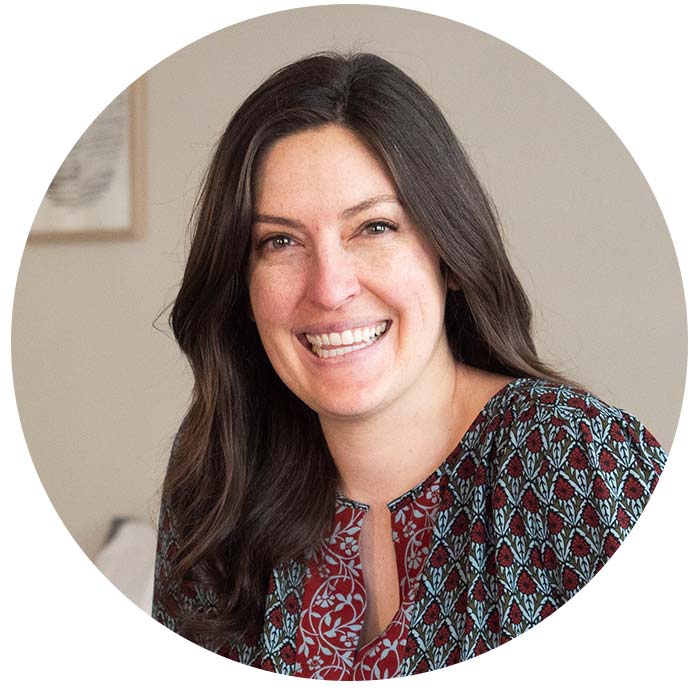Mattress Clarity is committed to providing our readers with accurate, unbiased, and up-to-date information about sleep.
As part of those efforts, we draw on the Mattress Clarity Expert Network — a group of experienced professionals in and around the field of sleep health who guide us in providing high-quality sleep education content. These experts ensure that the content we publish is accurate and share their knowledgeable perspectives about sleep health news. When an expert contributes to any piece of our content, we cite them by name and title and include a link to their profile.
We spoke with Jim Cobb, a registered nurse and blogs about sleep, dream journaling, and other related topics at The Dream Recovery System, He shared how his career as an emergency room nurse helped lead him to create The Dream Recovery System and focus on sleep health.

Mattress Clarity (MC): Why did you decide to become an emergency room nurse?
James Cobb (JC): I’ve always enjoyed adrenaline-filled environments but it took me a bit to find my way into the emergency department. My first degree was in journalism. I worked for a time as a newspaper reporter before finding my way into health care. I enjoyed writing and meeting tight deadlines but didn’t like being behind a desk all of the time.
I started thinking about health care and after gaining some experience as a medical-surgical nurse, I worked over a year in an intensive care unit before starting in my hospital’s float pool. The first time I got sent to the ED [Emergency Department] I remember this one patient who had gotten mad at her friend and jumped out of her car. She had road rash up and down her arms and legs. The car had been going about 45 miles per hour. I think what was most fascinating for me was the way psychology and kinematics came together. The emergency department was easily the most interesting corner of the hospital to me. I decided to take the course my hospital offered so I could spend more time there.
MC: What are some highlights of your career to date?
JC: Serving as an Emergency Department Director for three years was one of the hights. Another was serving as the nursing director at an Arizona state prison. I also won several awards for innovation from the Department of Veteran’s Affairs. While you can affect huge, positive changes in positions like that, there is also far too much time spent in meetings. I get restless sitting behind a desk too long. I prefer to work at the bedside.
MC: When did you first take an interest in sleep?
JC: I’ve spent the far majority of my career working nights and I had developed what I called “the system” for recovering from a series of busy night shifts. I found myself coaching friends and coworkers when they’d struggle with working nights telling them about the system.
What really fired me up about studying sleep, however, was talking and working with these guys who work in the oilfield in the Permian Basin. They were there to make as much money as they could in as short of a time as possible and then go back home, wherever that was for them. While they were in west Texas and eastern New Mexico they lived on speed, meth, energy drinks, coffee, and avarice. Then, to wind down, it’s marijuana, Benadryl, and sleeping pills and other “downers.”
What is a six-figure salary worth if it costs you your health? This lack of sleep extends far past the oilfield industries, however. It’s officially a national epidemic, according to the Centers for Disease Control. I saw a huge need for this blog because people need guidance on how to tackle the issues for themselves. Sleep issues aren’t something that are fixed very well, very easily with a single pill. The individual’s issue often extends right into the spiritual realm. Indeed, trying to solve the problem with a pill opens the doorway to so many other problems.
MC: How does the issue of sleep inform your work as a nurse?
JC: A lot of the people who come into the Emergency Department in the middle of the night are people who are having a hard time with sleep, for one reason or another. I get to hear about sleep in one way or another every day I work.
MC: You’re also the founder of The Dream Recovery System. What inspired you to create this site?
JC: A lot of the writing on sleep and health completely ignores the spiritual dimension of the problem. If you asked one of those oilfield guys something like, “Well, you just got done with a 36-hour shift. You made $155,000 last year, you say. Why? Why do you work so hard?” They might say something like, “I work hard because I don’t want to be away from my family. I want to make the most I can and then go back home.” You could have this whole interchange about the costs of their sacrifice and that’s what’s underlying this neglect of sleep. It ignores the “why” about going to sleep, beyond it being a necessity.
Not only should sleep be about letting yourself heal and recuperate, but it should also be about figuring your life out, about inspiration. You can get the most benefit possible by journaling your dreams. If you let it, an illuminating sort of “conversation” can play out between your conscious and subconscious. That nightly conversation can have a powerful effect on your life.
MC: What are your top three tips for anyone looking to improve their sleep?
JC: First, keep a dream journal and learn how to remember your dreams. Becoming an enthusiast in this area can give you a powerful incentive to answer the question ‘why go to bed right now.’ It’s tempting to put it off but you need a certain amount every day and there are only 24 hours in a day.
Second, many experts advise you not to work out before going to bed. I’m something of a contrarian. Going for a relaxing evening stroll with your dog or partner; going for a night swim; doing some gentle stretches; all of these things can put you in a pleasant frame of mind for going to bed. Light physical activity is fine and fun. Don’t think of it as fitness, burning calories or anything like that, even though it is. It’s more important that it be played for you. Look at the moon! Think about how good the stretch feels. Laugh!
Third, sleep gets a bad rap. Some people resent it. They think about how they could be working some more if they didn’t have to sleep. They could be studying. Bottom line they resent having to sleep. Never do that. Embrace your need to sleep. When you do, you can have some fun with it. Try learning while you’re sleeping. Try brainwave entrainment. Try getting a better mattress. Good sleep can add quality to your life if you let it and you approach the situation with creativity.
Interested in joining Mattress Clarity’s Expert Network? If you’re a sleep or medical expert who wants to share your expertise with our readers, please contact our Managing Editor, Katie Golde, at katie (at) mattressclarity (dot) com.

